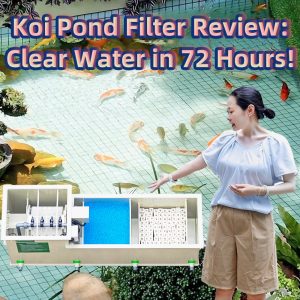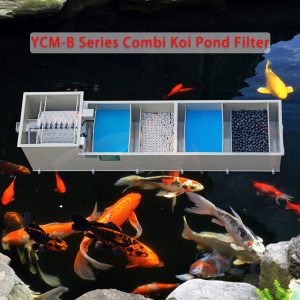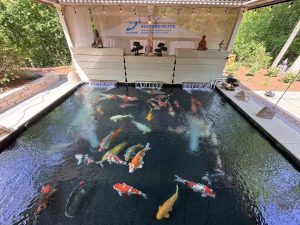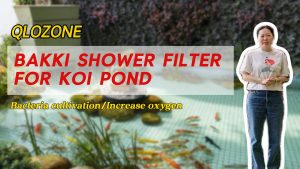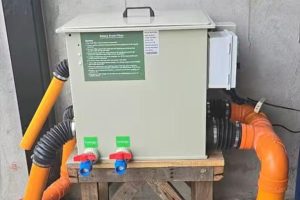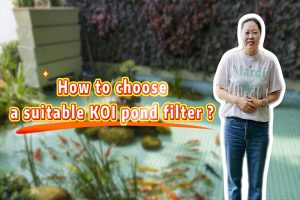In cold seasons, fish pond filtration equipment faces various tests, especially when the temperature drops below freezing, some equipment may be more prone to problems. The following types of filtration equipment or components should be particularly paid attention to for protection and maintenance:
Types of vulnerable equipment
1. External Pumps and Pipes: Exposed water pumps and pipes are susceptible to freezing, especially in cases of sudden temperature drops overnight. When water freezes, it expands in volume, which can cause pipes to burst and pump damage.
2. UV Lamps: UV bulbs may become more brittle when exposed to cold, and frequent on/off cycles may accelerate their aging, affecting their lifespan.
3. Biological Filtration Towers/Chambers: While the biological filter media itself is not susceptible to frost damage, the supporting structure and internal/external circulation pipes may be affected by freezing, causing water flow to be obstructed.
4. Electronic Control Module: Temperature sensors, timers, and other electrical components may malfunction in extremely cold environments, affecting the automated functions of the filtration system.
Symptoms and Causes of Failure
Stagnant of flow: Due to freezing, water flow is impeded, causing a significant drop in filtration efficiency and potentially leading to deterioration of water quality.
Decreased performance: Low temperatures reduce the activity of bacteria in the biological filter, affecting the efficiency of ammonia nitrogen and nitrite conversion.
Structural Damage: Freeze-thaw cycles cause stress in plastic and rubber seals, leading to leaks or equipment cracks.
Countermeasures
Insulation and heat resistance: Using insulation materials to wrap exposed pumps, pipes, and electronic equipment, especially in northern areas, can be achieved by using special insulation covers or heating tapes.
Drain and freeze-proof: Before the expected temperature drops below zero, drain the standing water from non-freeze-resistant equipment to prevent damage caused by ice expansion.
Regular inspections: Increase inspection frequency during the cold season to promptly identify and resolve minor issues before they escalate into major failures.
Moderate heating: Use a heater to maintain a certain temperature in the water body and avoid complete freezing of the surface to ensure unobstructed water flow.
Adjust working mode: In extremely cold days, reduce the running time of the filter, but closely monitor water quality to avoid excessively reducing it and affecting water quality.
Conclusion
With proper preventive measures, the negative effects of cold weather on fish pond filtration equipment can be largely avoided or mitigated. The manufacturer of each device typically provides specific anti-freeze guidelines, and it is advisable to read the manual carefully and follow the manufacturer’s recommendations to ensure the safe operation of the equipment and the healthy overwintering of fish. With the advancement of technology, there are now more products specifically designed for cold climates on the market, providing fish pond enthusiasts with more options and making cold weather no longer a barrier to enjoying the beautiful scenery of fish ponds.

